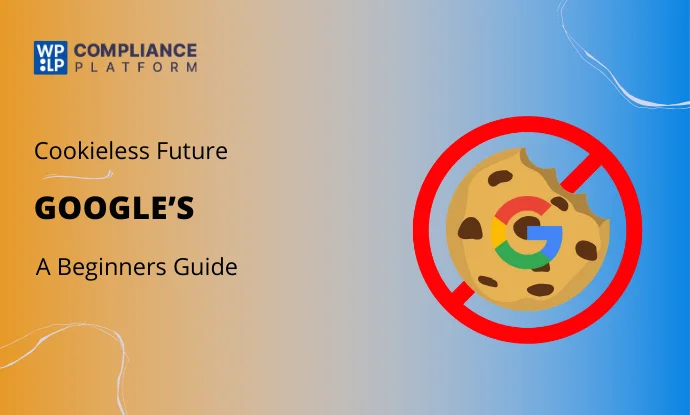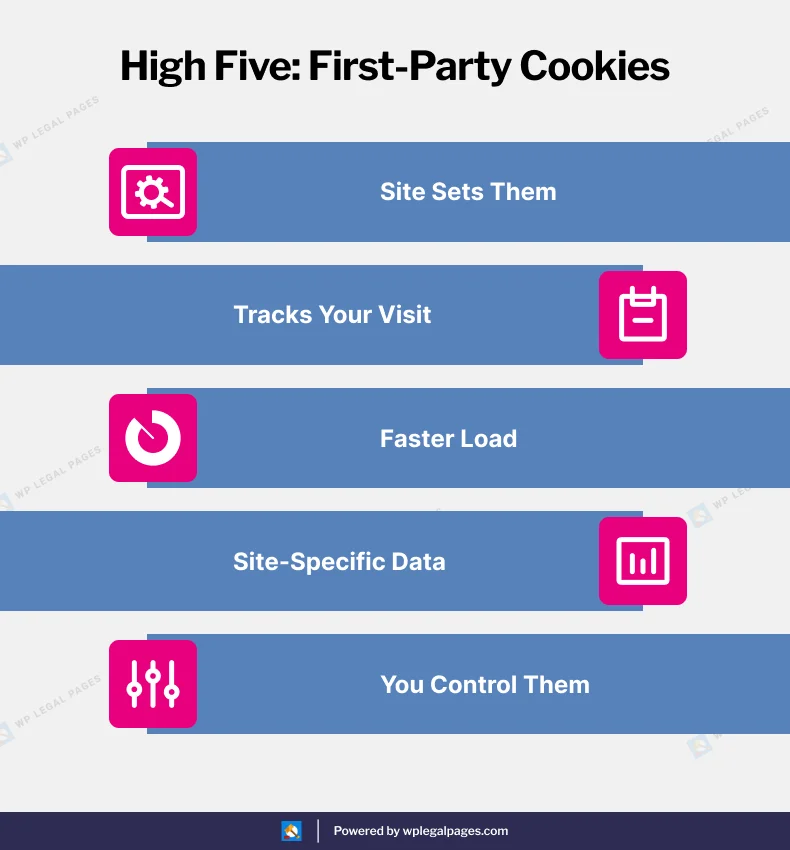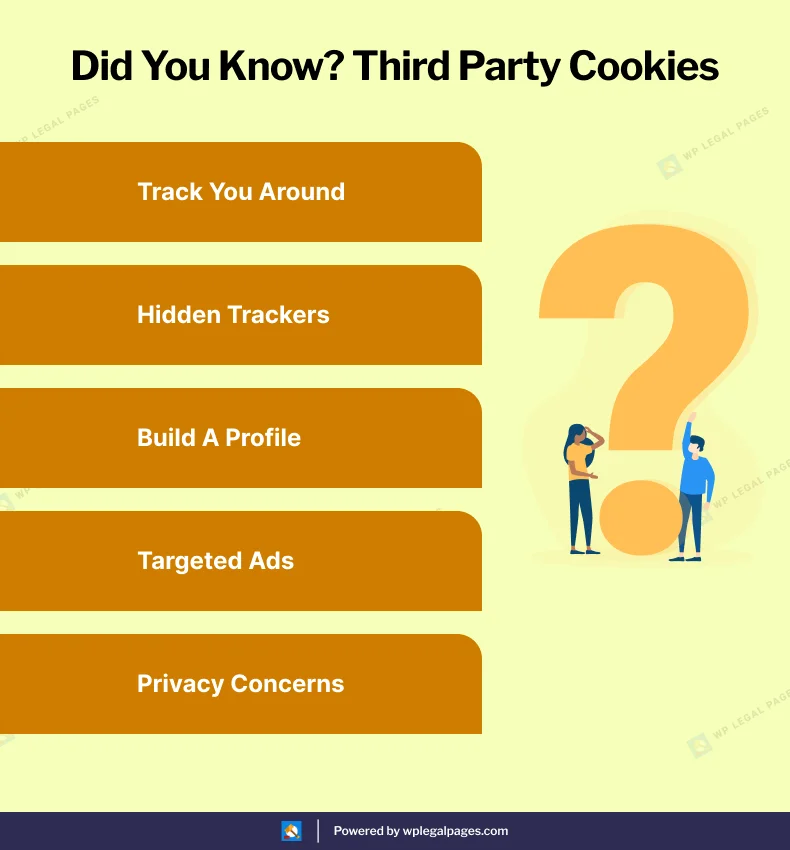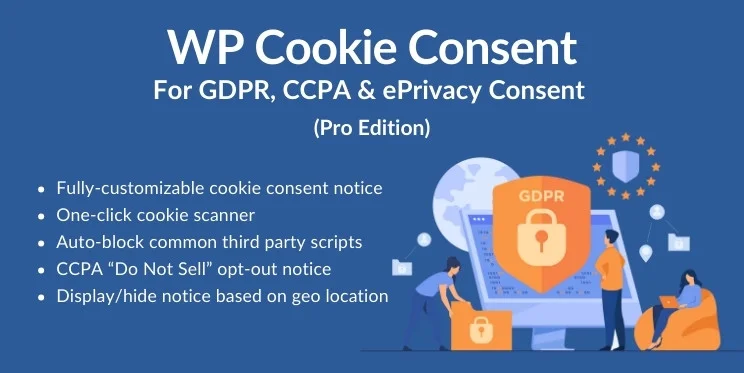Google’s Cookieless Future: What It Means For Your Website in 2026

Are you aware that Google is going Cookieless in the near future?
The announcement that Google is going cookieless has caused a storm among website owners. But what exactly is Google Cookieless Future?
Google’s motive behind its cookieless future is to phase out third-party cookies for all Chrome users in 2024.
With this latest announcement, are you prepared for this cookieless future?
Read more to find out, how you can tackle this situation.
What are Cookies?
Cookies are text files that the websites save when you visit them. They are vital to the field of online advertising. Cookies allow websites to track your online activities, help remember your preferences, and also save your login information. You can consider them to act like electronic Post-it notes.
This enhances the user experience for your customers.
The two primary types of cookie include first-party cookies, that are managed by the website you visit, and third-party cookies, that are created by external sites and commonly used for targeted advertising.
Let’s us look at each one carefully.
First Party Cookies

First-party cookies are directly stored by the website (or domain) you visit. These cookies enable website owners to collect analytics data, save language settings, and perform other valuable functions that improve user experience.
A first-party cookie is used when a user connects to an online retailer like eBay.com. The request is sent through a web browser to increase user confidence that they communicate directly with eBay.
The web browser saves this data file to the user’s computer under the “eBay.com” domain. If first-party cookies were turned off, users would have to check in every time they visited and would be unable to make multiple online purchases because the cart would reset after each session.
Third-Party Cookies

Websites other than those you currently view create cookies from third-party domains. These cookies are frequently used for online advertising and are placed on a website via a script or tag. Any website that loads the third-party server’s code can access a third-party cookie.
When a user shops on Amazon, third-party cookies operate similarly to the above mentioned example. They might browse the product pages and consider a few things.
If customers decide to purchase only one item, such as the brown hat rather than the brown shoes, they may receive emails and other marketing for the brown shoes they looked at but never purchased.
Even after the user ends their session and closes their browser, that tracking data is still in effect.
What Do You Mean By Google Cookieless?
Google Cookieless refers to Google’s initiative to avoid relying on third-party cookies to track and target users across websites. This decision was made in response to increased privacy concerns and regulatory changes.
Google aims to develop alternative technologies prioritizing user privacy while allowing personalized advertising and content delivery. This shift has significant implications for the digital advertising industry, requiring advertisers and publishers to adapt their strategies to align with the new privacy-focused approach.
Why is Google Going Cookieless?

Due to changing regulatory frameworks and growing privacy concerns, Google is working on a cookieless future. For many years, third-party cookies have been essential to online tracking and behavioral targeting, but they also raise privacy concerns and are coming under growing regulatory and consumer scrutiny.
Google hopes to solve these privacy issues by moving away from cookies while still providing advertising to reach its target market successfully.
This change indicates a more significant trend in the industry toward privacy-conscious internet data tracking and advertising methods. Additionally, it complies with laws stressing the value of user consent and data privacy, such as the US’s California Consumer Privacy Act (CCPA) and the EU’s General Data Protection Regulation (GDPR).
In addition, Google has committed to improving user privacy by developing substitute technologies that prioritize user choice, consent, and anonymity while allowing for individualized content delivery and advertising.
As part of a broader initiative called Privacy Sandbox, introduced in August 2019, Google stopped supporting third-party cookies on Chrome for a set of users. These efforts aim to develop open standards to fundamentally enhance privacy on the web.
What is Google’s Privacy Sandbox?
Google’s Privacy Sandbox is a set of privacy-focused and open standards designed to enable personalized advertising and measurement without relying on individual user tracking.
The Privacy Sandbox includes various APIs and technologies that aim to provide an alternative to third-party cookies, allowing advertisers to reach their target audience while respecting user privacy.
Critical Components of Google’s Privacy Sandbox
One key component of Google’s Privacy Sandbox is Federated Learning of Cohorts (FLoC), which groups people with similar browsing habits into cohorts and allows advertisers to target ads to these cohorts rather than individual users. This approach aims to deliver relevant ads while preserving user anonymity.
Additionally, Google is working on other APIs within the Privacy Sandbox, such as TURTLEDOVE and SPARROW, designed to enable interest-based advertising and measurement in a privacy-preserving manner.
Overall, Google’s Privacy Sandbox intends to support the transition to a cookieless future by providing privacy-centric solutions for effective online advertising and measurement.
This shift aligns with the broader industry trend towards increased privacy and user control over their online data.
Now, let’s us look into a few ways that you as an organization can do to tackle this cookieless situation.
How to Plan and Prepare For Google’s Cookieless Future

Although Google’s deadline to stop using third-party cookies for all Chrome users has been repeatedly pushed back, website owners still need to plan how their sites will function after these cookies are deprecated.
You can use a cookie scanner to determine which third-party cookies your website utilizes, but you should be aware of them to prepare for these changes.
You can perform a free audit for website cookies with a consent management platform (CMP), such as the cookie scanner provided by WP Cookie Consent. All cookies and online trackers used on a website are detected by WP Cookie Consent, and these include:
- Youtube
- GA4 tags
- Google ReCaptcha
- Matamo Analytics
- Tawk Widget
Even if Google’s Cookieless future comes in, WP Cookie Consent CMP will be able to identify the cookies used to collect end users’ personal information.
If Google is going entirely cookieless, WP Cookie Consent will assist you in obtaining legal consent under data privacy rules such as the GDPR, which is necessary for cookies and other comparable website monitoring mechanisms.
FAQ
No, Google is still using cookies. However, Google has changed how it uses cookies on its websites, such as Privacy Sandbox, which aims to limit cookie usage for advertising purposes.
Google is going cookieless as part of its effort to enhance user privacy and security. Many users demand transparency, privacy, and control over how their data is collected.
Google Cookies will be replaced with Google’s Privacy Sandbox program. With the help of Google’s Privacy Sandbox program, several APIs and other tools are being developed to provide advertising features independently of third-party tracking cookies.
Businesses can implement solutions like first-party cookies, server-side tracking, or alternative tracking technologies to prepare for the cookieless future.
Conclusion
Most of us will promote and advertise to customers differently because of Google’s plans to stop supporting third-party cookies on the Chrome browser. Google Cookieless future will help users retain their privacy.
Websites can continue depending on first-party and necessary cookies, but regulations such as the GDPR will still require users’ explicit consent from users.
But while we transition to a world without cookies, you can be sure that tools like WP Cookie Consent will help you to make a cookie banner for your website and continue to help comply with applicable data privacy regulations like GDPR and CCPA.
If you’ve liked reading this article, don’t forget to check our other similar articles:
- How To Add Cookie Banner To Your eCommerce Website
- Cookieless Future: Everything You’ll Need To Know
- American Data Privacy and Protection Act (ADPPA)
Want to design a beautiful cookie consent banner for your eCommerce website? Grab the WP Cookie Consent plugin now!
